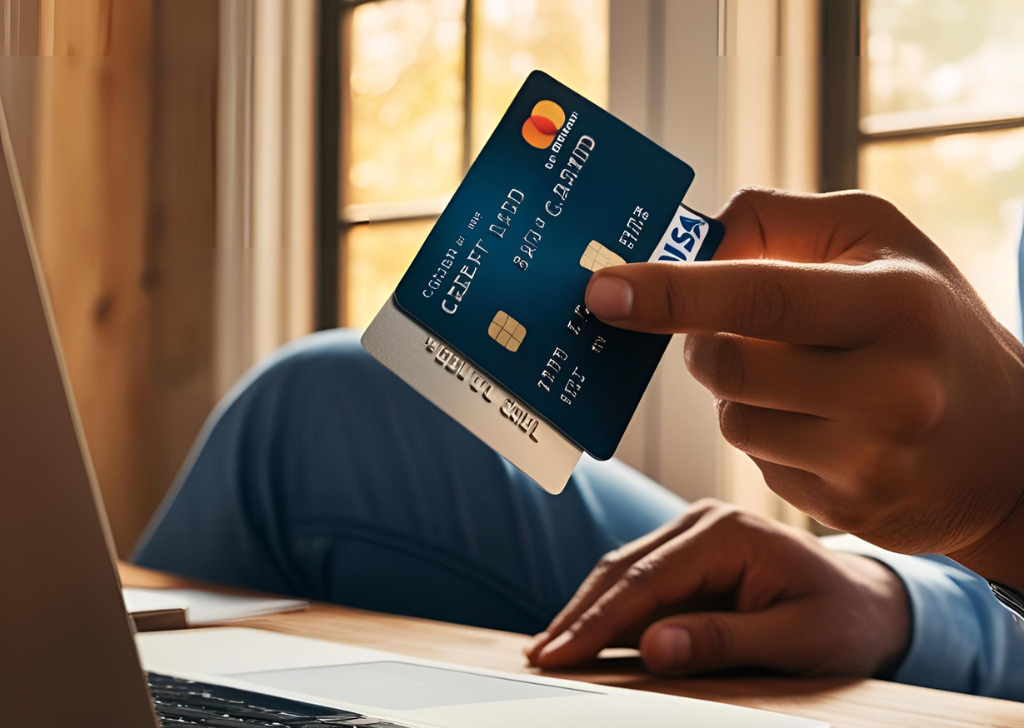Cybersecurity is a major concern for both financial organizations and consumers in a time when digital banking has become the standard. Sensitive financial information is at risk due to more complex cyberattacks brought on by the growing use of digital wallets and online transactions. The era of digital technology has revolutionized the way individuals manage their finances. The ease and accessibility of digital platforms have revolutionized the financial environment, whether for controlling spending, investing, or just moving money. However, these perks are not without risks, including malware, phishing scams, hacking, and cyber fraud. Everyone feels a little apprehensive about our hard-earned money since it appears that every other day, one learns about a new scam that makes the news.

Building Strong Passwords and Using Two-Factor Authentication
Frequent errors, such as using birthdays, personal information, or catchphrases, can increase the vulnerability of passwords. Use a mix of capital and lowercase letters, numbers, and special characters to make a strong password. Longer passwords are more difficult for hackers to brute-force and guess. It might be challenging to remember the passwords for all of your accounts when you have several. You should not write down passwords, especially financial ones. Use a trustworthy password manager if you have trouble remembering passwords. Changing passwords regularly can help increase account security. Maintaining a good password requires avoiding writing them down and making it a practice to change them frequently.
Two-factor authentication requires individuals to present two pieces of identity before they can access their accounts, adding a degree of protection. You must enter a one-time code created by an authentication app or emailed to your mobile device. Activating 2FA will prevent someone from accessing your bank account without the second factor of authentication, even if they can figure out your password.
Stay Updated and Beware of Phishing Scams
Outdated software can be exploited to create digital vulnerabilities. To fix these weaknesses and increase the security of your cash, developers often update software and launch new versions of gadgets and applications. Security teams fix vulnerabilities as soon as they are discovered, and this is an ongoing process. For this reason, it is essential to keep up with updates for the software on your devices, such as Windows, iOS, and Android, as well as for financial programs like demat and banking.
Activating auto updates is a simple way to accomplish this. You may reduce your susceptibility to hackers taking advantage of known flaws in your software by keeping it updated. Additionally, confirm the legitimacy of the programs you are downloading to your smartphone.
Phishing is the term used to describe fraudulent attempts by fraudsters to get private information, such as account credentials, credit card details, or passwords, by posing as a reliable source in an electronic conversation. These scams frequently take the shape of emails requesting urgent information or websites that look authentic but require personal information. The most effective defense against these frauds is to avoid clicking on links from unknown sources or sending sensitive information via email. To confirm the legitimacy of any email, look up the sender’s address, and if in doubt, give them a call.
Choosing Secure Financial Institutions and Monitoring Accounts
Scammers frequently target bank accounts. Selecting financial organizations that put security first by providing features like fraud protection services, account alerts, and biometric verification is crucial. It is beneficial to look at choices that strike a balance between financial gains and robust security measures because some institutions also provide promotional incentives while maintaining security. Protecting your bank account with fraud protection measures can improve ease and security.

Keep an eye out for any fraudulent purchases by routinely reviewing your credit card and bank statements. Several financial institutions have online portals or mobile apps that let you monitor account activities in real time. To mitigate any losses, notify your bank right away of any questionable transactions.
Safe Internet Use and Device Protection
You should use a secure network for online transactions. Try to utilize your mobile data for transactions when you’re not at home. Ensure that the wireless internet network is password-protected and safe, if it isn’t feasible. Using a password-protected public Wi-Fi network to access your private banking information puts you at risk of giving hackers and cybercriminals unauthorized access to all of your personal and financial data. They might harm you by intercepting this information. If you have no other choice, try utilizing a Virtual Private Network (VPN), but stay away from public Wi-Fi networks. To put it simply, a VPN protects the privacy of your data.
You may access the internet through your device, such as your phone or computer, and a hacked device can provide hackers access to private data. Install programs, particularly financial apps, from reputable stores like the Apple App Store or Google Play Store to safeguard your devices and apps. To defend against malware and viruses, install and update reliable antivirus software regularly. It is standard practice to physically secure devices using passwords, patterns, MPINs, or biometrics like fingerprints and facial scans. You could use remote data wiping and device tracking to help if a device is stolen or lost. Although remote data wiping enables you to remotely log out of all of your accounts and erase all of the data on your device, device tracking utilizes GPS to pinpoint the position of your device. Activating these features can offer further defense against possible dangers.
Vigilance Is Your Best Defense
We must take preventative measures to safeguard our online accounts and data from cyber threats in the current digital era. You can protect your important data and reduce the likelihood of being a victim of cyberattacks by adhering to these crucial cybersecurity guidelines. We urge everyone to stay vigilant, update their software regularly, create strong and unique passwords, back up critical data often, and exercise caution when clicking on suspicious emails or links. With a little effort and awareness, each of us can help make the digital world safer for ourselves and others. Everybody can contribute to making the digital world a safer place for both themselves and other people with a little work and awareness.





